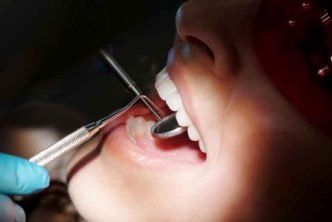The veterinary profession can come with risks due to handling animals and medical equipment. Veterinarians can become disabled due to injury, illness, or other unforeseen events. The disability can be temporary or permanent. Some people recover to continue working in their initial position. Others are forced to take up other jobs or work in a lesser capacity.
Insurance can help pay part of your wages when you’re disabled. Here are the key things to know about disability insurance for recently graduated veterinarians:
Table of Contents
Two Types of Disability Insurance for Veterinarians
Recently graduated veterinarians have two main types of disability insurance coverage: short-term and long-term. Short-term disability insurance covers wages for the temporary disability, while long-term pay the policyholder for the duration of the disability.
a) Short-Term Disability Insurance
Working with animals can result in repeated cases of injury and short-term disability. If you cannot work temporarily due to injury, short-term disability insurance can cover part of your wages as you recover. Short-term disability insurance for veterinarians covers 60-90 days after the disabling injury or condition.
Recent graduates can leverage short-term disability insurance for veterinarians offered by their employers. Employer-sponsored policies feature limited benefits. You should consider private coverage to get the most from your disability insurance. Short-term policies can cover vets on maternity leave.
b) Long-Term Disability Insurance
If your injury doesn’t heal within 90 days, you should seek long-term disability insurance policies. Long-term policies pay part of your wages for the duration of the disability and start when short-term policies end. You can find long-term disability insurance coverage from your employer, but such policies may be insufficient.
Purchasing private long-term insurance can pay your wages until you recover or hit retirement age. Payments usually end when you return to work, but you can use different riders, depending on your situation. Getting the right features will verify that you’re covered for all eventualities, including when taking on another profession.
What Disability Insurance for Veterinarians Cover
Disability insurance for recently graduated veterinarians pays a portion of your wages when you’re unable to work. Most policies pay up to 60% of your salary, but each is unique. Disability insurance can cover income adjustment, business overhead, living adjustment, and more. Veterinarians should review leverage special features and riders to get maximum benefits. Here are common features/riders and what they cover:
1. Own Occupation
Vets work in specific specialty fields. After an injury, you might not be able to return to your original specialty but can take up other occupations. Own occupation coverage continues to pay you for the initial position even if you take up other professions. You’ll receive up to 60% of your salary for the work you can no longer fulfill due to disability. Policies specifying “any occupation” won’t pay if you take up other jobs, so make sure you’re clear on the terms.
2. Income Adjustment
Recently graduated vets start from the bottom and work to top positions. Promotions and salary increments hallmark the career path. Your insurance needs and premiums will increase when you earn more, and disability shouldn’t change such arrangements. Income adjustment riders accommodate promotions and salary increments. The feature adjusts your policy to offer increased benefits and premiums without further underwriting.
3. Business Overhead
Disability can leave you unable to run your veterinarian business effectively if you own your practice. Business overhead riders are designed for such scenarios. The insurance will cover various costs, including payroll, rent, utilities, and other business costs. Most recent graduates work under an employer, so you may not need to pay extra for a business overhead rider. Don’t skip on the feature if you own the business.
4. Residual Disability
Some vets can recover and return to work in their original occupation but not at full capacity. You might need a few months or years to recover 100% performance. In some cases, the disability prevents you from ever working at the previous level. Residual disability policies are designed for such situations and continue to offer benefits after you resume work. Payments will cease once you fully recover to previous levels.
5. Other Riders
Veterinarians have various other disability insurance riders to consider when purchasing a policy. Disability can result in mental illness and addiction to pain medication, in which case you can buy mental disorder and substance abuse coverage. Cost of living adjustment helps you cope with inflation. Non-cancelable policies offer benefits for the period of disability regardless of material developments. You can ask the insurance provider for other riders.
Disability Insurance for Recently Graduated Veterinarians
Disability insurance can offer benefits when you cannot work because of a disabling condition. Anyone can get ill or injured, so disability insurance is for all working professionals. Veterinarians are more exposed to injuries and illness because of their work. If you recently graduated, the chances of injury or illness are high.
Purchasing adequate disability insurance for recently graduated veterinarians can cover your wages as you recover. Make sure you buy coverage from reputable insurance companies. Working with providers dedicated to vets will give you a better understanding of the risks and mitigations.





